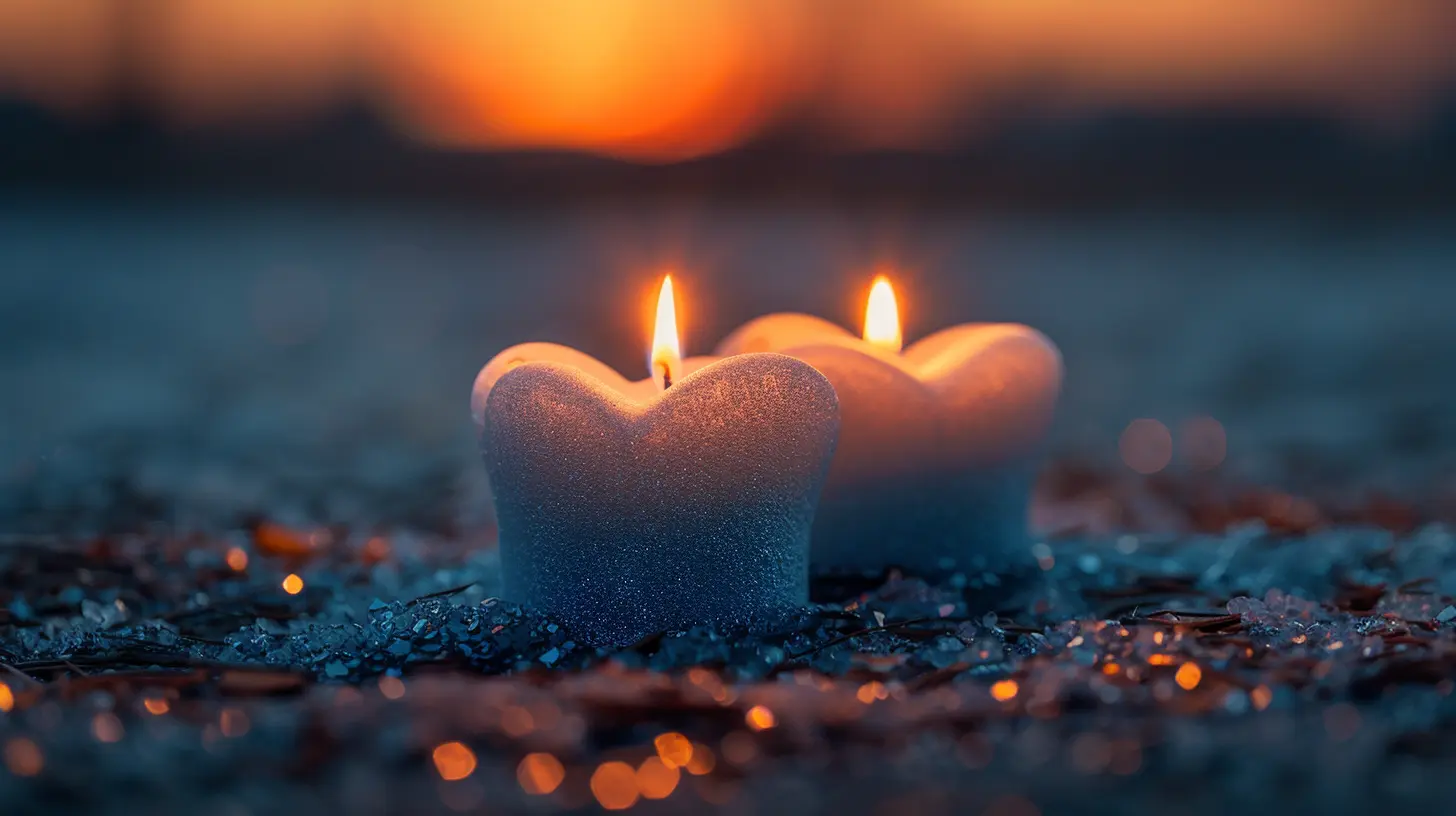28 December 2024
Grief. It’s one of those emotions that everyone faces but no one really knows how to handle until they're in the middle of it. Whether it’s the loss of a loved one, a breakup, or even losing a job, grief comes in waves—unpredictable, overwhelming, and deeply personal. Truth be told, there’s no guidebook that works for everyone, but there are some ways to help ease the weight on your chest. Let’s dive into the journey of coping with grief and finding a path to emotional and psychological healing together.

What is Grief, Really?
First things first—what exactly is grief? In simple terms, grief is our emotional reaction to loss. It’s not just sadness. Oh no, grief is a complex swirling mix of emotions. You might feel anger, confusion, guilt, or even relief, depending on the situation. Grief doesn’t follow a clear timeline or a set of rules—it’s messy and deeply personal. Kind of like fingerprints, no two grief experiences are exactly the same.Have you ever heard of the "five stages of grief"? They include denial, anger, bargaining, depression, and acceptance. However, don’t stress too much about these stages—they’re not a strict ladder you climb. It’s perfectly normal to bounce between them or feel a mix of them at the same time. Grief isn’t linear, and that’s okay.
Why Does Grief Hurt So Much?
Let’s face it, grief is painful. It feels like there’s an aching, empty spot in your chest where something—or someone—used to be. But why does it hurt so deeply? The answer lies in connection. Humans are wired for relationships. When we lose someone or something important to us, it’s almost like we’re losing a part of ourselves. It can be disorienting, like trying to navigate through fog.Grief also brings uncertainty, which naturally makes our minds spiral. Suddenly, things that felt stable no longer seem certain, and it’s hard to regain your footing. It’s no wonder so many people feel emotionally unmoored during times of loss.
The Emotional Rollercoaster of Grief
Have you ever been on a rollercoaster that you didn’t sign up for? That’s grief in a nutshell. One minute you’re sobbing uncontrollably, and the next you feel numb, like your emotions have checked out for the day. Let’s break down some of the common ways grief affects us emotionally:1. Sadness and Loneliness
This one’s a given, right? Loss leaves a void, and sadness fills that space. You may feel like no one truly understands your pain, which can lead to deep loneliness.2. Anger
Grief isn’t all tears—it’s also rage. You might feel angry at the person who left, at yourself, or even at life itself for being so unfair. And guess what? That’s completely normal.3. Guilt
If only I had said this. If only I had done that. These "what ifs" and "should haves" can stick with you, making it hard to move forward.4. Relief and Confusion
Sometimes, especially after a long illness or a toxic relationship, loss brings relief. But that relief can trigger guilt, leaving you stuck in an emotional tug-of-war.The point is, grief doesn’t stick to one emotion. It’s a kaleidoscope of feelings, all valid in their own way.
Coping with Grief: Small Steps Toward Healing
So, how do you deal with grief when it feels impossible to bear? There’s no shortcut through the pain, but there are ways to cope and slowly find peace. Here are some practical tips to help you on your journey:1. Allow Yourself to Feel
First things first: stop suppressing your emotions. Cry if you need to. Scream into a pillow. Journal your heart out. Grief demands to be felt, and bottling it up will only make it worse. Think of it like a pressure cooker—if you don’t let the steam out, it’s eventually going to explode.2. Talk About It
You don’t have to go through grief alone. Reach out to a trusted friend, family member, or even a therapist. Talking about your emotions doesn’t make you weak; it makes you human. Sometimes just saying things out loud can lighten your burden.3. Find Healthy Outlets
Channel your grief into something productive. Take up painting, gardening, or writing. Exercise can also be surprisingly therapeutic—it’s like sweating out the sadness. Whatever you choose, make sure it’s something that brings a sense of comfort or accomplishment.4. Create Rituals of Remembrance
Honoring what you’ve lost can be incredibly healing. Light a candle, visit a special place, or create a scrapbook full of memories. Rituals give us a tangible way to hold onto the good times, even as we move forward.5. Practice Self-Compassion
Be kind to yourself. Grief has no expiration date, and healing is not a race. If you’re having a bad day (or week, or month), remind yourself that it’s okay. You wouldn’t rush a broken bone to heal, so don’t rush your heart, either.6. Seek Professional Help
If you feel stuck in your grief, don’t hesitate to reach out to a counselor or therapist. Grief counseling can provide tailored strategies for coping and help you navigate the emotional maze.The Psychological Impact of Grief
Grief doesn’t just mess with your emotions—it can also take a toll on your mental clarity. Ever found yourself forgetting things or struggling to focus? Welcome to "grief brain." Losing someone or something important can leave your mind feeling foggy and fatigued. It’s not just in your head—your brain is quite literally rewiring itself to adapt to the new normal.Prolonged grief can also trigger mental health issues like anxiety and depression. If you notice persistent feelings of hopelessness, excessive worry, or trouble functioning in daily life, don’t ignore it. Your mental health deserves just as much care as your physical health.
Moving Forward (Not "Moving On")
One common misconception about grief is the idea of "moving on." Let me clear this up—you don’t have to "move on" to heal. Moving on implies leaving something behind, and in grief, that’s simply not how it works. Instead, think of it as moving forward. You carry the love, memories, and lessons with you while creating space for new experiences and joys.Healing doesn’t mean forgetting. It means learning to live with the loss in a way that allows you to grow. It’s like planting a garden—you’ll always know what was there before, but you nurture new seeds that bloom in their own time.
Wrapping Up: Give Yourself Grace
Coping with grief isn’t about getting over it; it’s about getting through it. It’s about finding ways to honor your emotions, tend to your wounds, and keep walking even when the road feels endless. If you’re grieving right now, please know this: You are not alone, and it’s okay to not be okay.Take it one day, one hour, one moment at a time. Healing is never linear, and that’s perfectly normal. Remember, grief is a testament to the love and connection you shared. In that sense, it’s not just an ending—it’s a reflection of something beautiful and meaningful.










Elowen Palmer
This article beautifully captures the journey of healing. Your words offer comfort and hope to many. Thank you.
February 7, 2025 at 4:04 AM